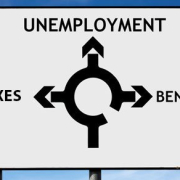Restaurants and Businesses Benefit from Temporary Tax Deduction
- Learn about a new business tax break.
- Find out which establishments qualify as restaurants for tax deduction purposes.
- Discover whether or not take-out meals qualify for the deduction.
- Learn about “lavish” limitations of the deduction.
- Find out how the taxpayer’s presence affects the deduction.
- Learn about substantiation requirements associated with the deduction.
Congress has provided businesses with a temporary tax break as a means of helping the restaurant industry, which has been devastated by the COVID pandemic. Fiducial has more details about this valuable tax deduction below!
Tax deduction for business meals
Although the Tax Cuts and Jobs Act eliminated the business deduction for entertainment, it continued to allow a tax deduction for 50% of the cost of qualified business meals.
As part of its COVID relief efforts Congress is allowing businesses to deduct 100% of business meals during 2021 and 2022, provided the meals are provided by a restaurant.
Recent guidance from the IRS (Notice 2021-25) defines the term restaurant to mean a business that prepares and sells food or beverages to retail customers for immediate consumption, regardless of whether the food or beverages are consumed on the business’s premises.
However, a restaurant does not include a business that primarily sells pre-packaged food or beverages not for immediate consumption, such as a grocery store; specialty food store; beer, wine, or liquor store; drug store; convenience store; newsstand; or a vending machine or kiosk.
In addition, an employer may not treat as a restaurant any eating facility located on the business premises of the employer and used in furnishing meals excluded from an employee’s gross income under IRC Sec 119, or any employer-operated eating facility treated as a de minimis fringe benefit even if such eating facility is operated by a third party under contract with the employer.

Rules for deducting business meals
Business meals are deductible up to an amount not considered “lavish” (reasonable under the circumstances). Also, the taxpayer (or a representative of the taxpayer) must be present. The representative could be, for example, the taxpayer’s employee, an attorney or an independent contractor who performs significant services for the taxpayer.
A final hoop to qualify for the tax deduction is meeting the substantiation requirements. You must be able to establish the amount spent, the time and place, the business purpose and the business relationship and names of the individuals involved.
Taxpayers should keep a diary, account book or similar records with this information. They should record the details within a short time of incurring the expenses. A timely kept record carries more weight in an IRS audit than one created months or years after the event occurred, when memory can be hazy. For expenses of $75 or more, the IRS also requires documentary proof (receipts, etc.).
Lastly, employees cannot claim a deduction for business meals, even if they have met all of the above requirements. The Tax Cuts and Jobs Act suspended the deduction of employee business expenses as an itemized deduction for years 2018 through 2025.
Have questions about this deduction? Call Fiducial at 1-866-FIDUCIAL or make an appointment at one of our office locations to discuss your situation.
Ready to book an appointment now? Click here. Know someone who might need our services? We love referrals!
For more small business COVID-19 resources, visit Fiducial’s Coronavirus Update Center to find information on SBA loans, tax updates, the Paycheck Protection Program, paid sick and family leave, and more.








